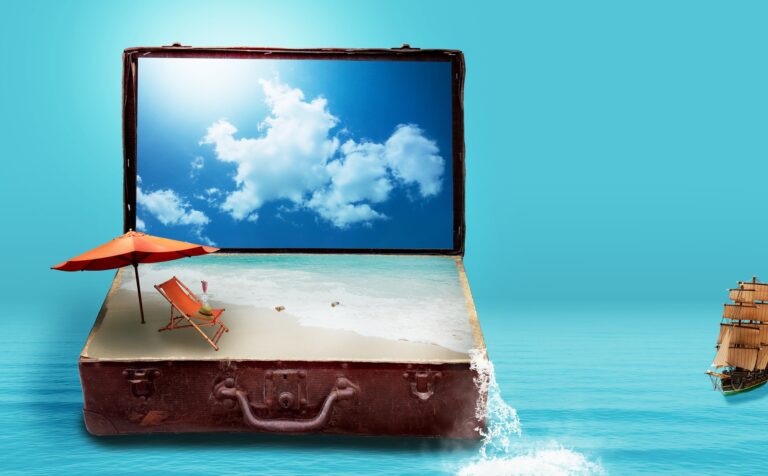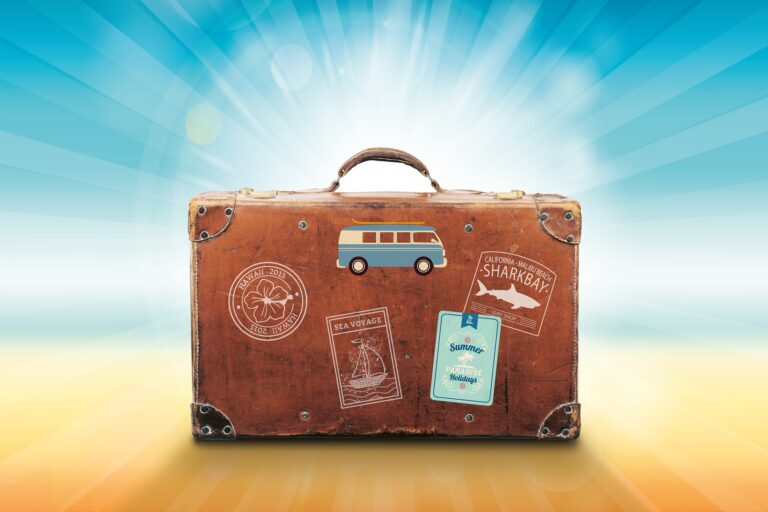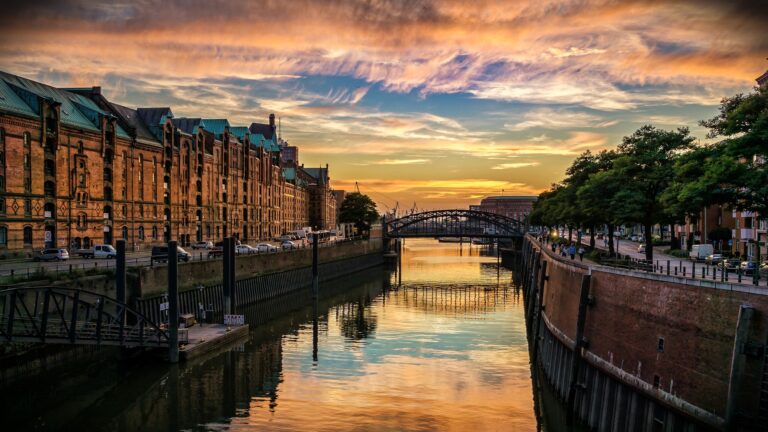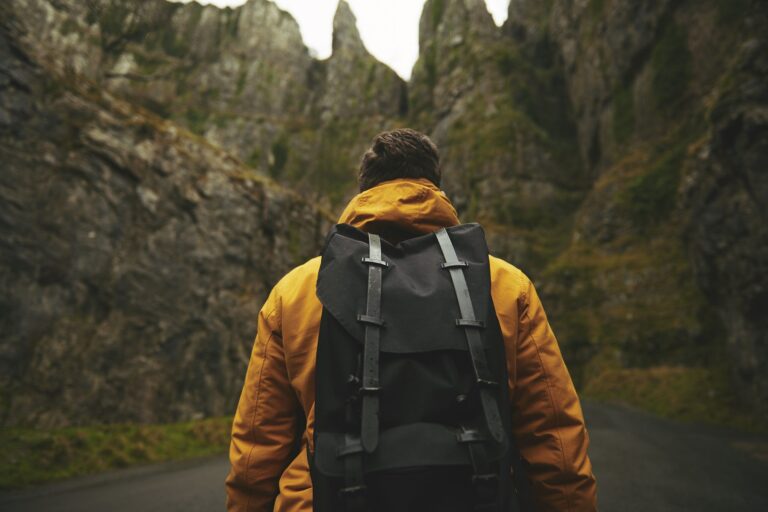Unlocking Adventures: Comparing Slow Travel vs Fast Travel
Slow Travel vs Fast Travel
Understanding the Concept
So, what’s the fuss about slow travel versus fast travel? It’s all about how you like to travel and how deep you want to dive into a place. Slow travel is about taking your time to really get to know a place. Fast travel, on the flip side, is like speed dating with cities—it’s all about packing your itinerary with as many sights as possible in a short period.
With slow travel, you get to know a few places really well. It’s all about soaking up the local traditions, tasting the area’s food, and chatting with the people who call it home. Fast travel? You’re zipping through as many spots as possible, which often means you’re skimming the surface.
Here’s a quick snapshot to compare:
| What’s Different | Slow Travel | Fast Travel |
|---|---|---|
| How You Move | Chill | Frantic |
| Cultural Feel | Deep Dive | Quick Glance |
| Stress Meter | Zen | Buzzing |
| Impact on Nature | Kinder | Not-So-Great |
| Wallet Friendliness | Easy | Spend-o-rama |
Benefits of Slow Travel
Let’s talk about why slow travel is making waves and might just be your next travel crush—it’s easy on the nerves and the bank account.
Authentic Cultural Experiences
When you go the slow route, you really get to taste the flavor of a place. We’re talking about sampling local dishes, jumping into local parties, and having chats with friendly locals. Staying longer means you can really understand what makes a place tick as you hang out and become semi-local yourself.
Stress Reduction
Being in no rush is one of slow travel’s biggest strengths. No jam-packed schedules, no need to rush from one attraction to the next. Just pure, laid-back adventures where you can decide to just wing it if you want. You’re free to take everything in at your own pace without the constant need to pack up and move.
Cost Efficiency
Guess what? Your wallet will love slow travel, too. Staying longer in one spot often gets you discounts on where you sleep, cutting down on travel costs and letting you eat home-cooked meals. It’s about spending smart so you can splurge on experiences that count.
Sustainability
By hanging around longer in one place, you’re doing nature a solid. Slow travel is good for the planet and the locals, too. It helps reduce your carbon shoeprint and supports the community’s economy.
In short, deciding between slow and fast travel isn’t about right or wrong—it’s about what you want out of your journey. Whether you’re after cultural richness or a laid-back vibe, slow travel has something for everyone. Ready to dive deeper into how to blend your travel styles? Check out our piece on finding the right balance.
Immersion in Local Culture
Getting a feel for a destination’s culture plays a big role when picking between taking it slow or speeding through your travels. Taking the scenic route lets you soak in the local vibe by diving into cultural adventures and chatting with the locals.
Cultural Experiences
One of the cool things about slow travel is getting closer to authentic experiences. Hang out in one spot for a while, and you can:
- Explore Hidden Gems: Ditch the race against the clock to find chill spots like local markets, history-filled hangouts, and cool art galleries.
- Join the Festivities: Stick around long enough to catch local festivals and events, diving into traditions right alongside the locals.
- Try Your Hand at Local Crafts: Jump into workshops involving traditional crafts, cooking, and more, opening up fresh perspectives on local life.
| Activity | Fast Travel | Slow Travel |
|---|---|---|
| Local Attractions | Quick Glance | Deep Dive |
| Local Festivals | Usually Missed | Fully Embraced |
| Cultural Workshops | Hardly Feasible | Abundant & Wide-Ranging |
Opting for a leisurely pace can give travelers a rich taste of a place’s history, grub, and daily grind. It’s about going for quality over quantity, crafting genuine connections and memories that stick.
Interaction with Locals
A big perk of slowing things down is getting real with the folks who call the place home. This deeper dive can turn a getaway into a meaningful cultural swap:
- Chit-Chat: Skip the mad dash and enjoy chats with locals, catching personal insights about their customs and routines.
- Get Involved: Sign up for volunteering or community gigs that come your way, giving back and buddying up with locals.
- Eat Like a Local: Forget the same old, same old tourist bites and savor local eateries or take part in home-cooked feasts.
| Interaction Type | Fast Travel | Slow Travel |
|---|---|---|
| Conversations with Locals | Short and Quick | Dive Deep and Meaningful |
| Community Involvement | Not Much | Big and Impactful |
| Food Experiences | Touristy Nibbles | True Local Flavors |
When you blend right in with the local scene, you come away with more than just snapshots—it’s about truly getting to know your hosts’ way of life. For tips on connecting with locals, check out our thoughts on flying solo or rolling with buddies.
When it’s all said and done, meandering about can serve up rich cultural jewels and heartfelt local chats, turning travels into a true immersive blast. And for a stress-free trip abroad, check out escape travel travel insurance to keep your adventures covered.
Stress and Well-being
Let’s chat real quick about how travel can mess with your mood, and why going slow might just be what the doc ordered.
Stress Reduction
Slow travel is like a deep breath in a busy world. Fast travel? It’s like gulping down a drink while running a marathon—it’s just go, go, go. Jam-packed schedules and hopping from place to place can wind you up pretty tight. But, when you’re taking your time, guess what? You actually get to soak in the moments making stress and anxiety take a backseat (Ecotourism World). Look at this quick sketch of stress levels:
| Travel Type | Chill Factor (1-10) | Nerve Status (1-10) |
|---|---|---|
| Slow Travel | 8 | 2 |
| Fast Travel | 3 | 7 |
This table’s like a doodle—just a quick idea, not the holy grail.
You won’t hit the wall with slow travel thanks to easy mornings, no-hurry sightseeing, and chilled home-cooked meals. There’s a certain magic in those unscheduled moments where you find yourself loving every unplanned minute.
Well-being Activities
Now, let’s dive into what you actually do on this slow train to calm-town. Fast travel is all about snapping selfies at the hotspots. Slow travel is different—it’s about jumping into real-life experiences and making some memorable connections.
Check out these chill activities tied to slow travel:
- Meandering Walks: Spend an afternoon poking around a neighborhood, watching life happen all around you.
- Foodie Fancies: Cook a mean local dish with goodies from the market.
- Zen Retreats: Tune into your inner peace with yoga and meditation.
- Local Life: Kick back with a local family or join a farm tour and get a taste of sustainable living.
Slowing down isn’t just about you; it’s about supporting a shift toward eco-friendly and healthy travel vibes (ScienceDirect).
Both travel styles have their upsides, but if you’re looking to zen out, slow travel might be your go-to. If you want more ways to ease into a calmer vacation, take a look at travel 2 travel or check out travel by design travel agency.
Budget-Friendly Travel
When thinking about traveling without breaking the bank, there’s often a showdown: slow versus fast travel. Both have their perks and can be kind to your wallet, depending on what you’re into and your situation.
Cost Comparison
Fast travel sometimes wins the battle of the budget, especially in certain situations. By spending fewer days at a destination, you might save a bunch on places to stay and grub. But watch out; the price tag can balloon with lots of moving around and those can’t-miss attractions. On the flip side, taking your time with slow travel might be cheaper in the long run. You could land some sweet long-term rental deals and spend less on getting around (Teaspoon of Adventure).
| Travel Type | Crash Pad Cost | Getting Around Bucks | Chow Cost | Fun Costs | Total Damage |
|---|---|---|---|---|---|
| Quick Trip (7 Days) | $700 | $300 | $350 | $400 | $1750 |
| Slow Roll (30 Days) | $900 | $100 | $600 | $200 | $1800 |
Data Source: Teaspoon of Adventure
Saving Tips for Slow Travel
If you’re leaning towards slow-motion travel, there are heaps of ways to stretch your dollar:
- Long-term Accommodation Deals: Go for those monthly stay rates – they usually beat paying night by night. Try places like Airbnb or local rental sites.
- Use Local Markets: Hit up the local markets and whip up your own meals. You’ll slash food costs and get a taste of local flavor.
- Cut Transportation Costs: Stick around a while, and you won’t have to deal with high transportation costs all the time. Exploring with your own two feet or on a bike is cheap and green (Worldpackers).
- Pick Off-Peak Times: Traveling when others aren’t can mean cheaper flights and lodging. Enjoy the sights without shelling out or getting squished by crowds.
- Forget Pricey Tourist Traps: Opt for no-charge or cheap fun like hikes, parks, or checking out local spots. It’s more genuine and less spendy.
- Back Local Folks: Eat at mom-and-pop shops, buy crafts from the people who made them, and pick places to stay that care about the environment. It’s easy on the wallet and gives back to the local community (Planeterra).
Following these tricks, slow travel can stretch your money and help you bond with the places you visit. For more ways to save, peek at our guide on travel agents travel club uk.
If you’re juggling travel styles, our piece on business travel vs leisure travel might help you find the sweet spot without crushing your budget. And don’t forget to explore escape travel travel insurance to keep your trip financially safe.
Environmental Sustainability
When you’re choosing between slow and fast travel, it boils down to looking at how they affect the environment and doing your part to keep it green. This means we need to think about the carbon emissions of various travel methods and embrace practices that leave a lighter mark on Mother Earth.
Carbon Footprint
Travel is notorious for its hefty carbon toll, nudging climate change along. Slow travel usually involves hopping on trains, buses, or bikes—methods that spew less carbon than jet setting all over. A round-trip flight from London to Madrid, for example, pumps out around 0.38 tons of carbon per person (SmartGuide).
| Transportation Mode | Carbon Emissions (tons) |
|---|---|
| Air Travel (round-trip, London to Madrid) | 0.38 |
| Train Travel (per 1000 km) | 0.04 |
| Bus Travel (per 1000 km) | 0.05 |
| Bicycle Travel | 0 |
Jumping on a train not only shrinks your carbon footprint—it also spices up your journey, offering more views and chill time. For more on green travel ideas, check out time-to-travel travel agency.
Eco-Friendly Practices
Slow travel vibes with green habits that help make tourism kind to the earth. Check out a few ways it does this:
- Taking Public Transport: Choosing buses, trams, or trains instead of driving or flying drops your carbon emissions.
- Biking or Walking: Roaming a new place on a bike or your own two feet is a win for the planet and gives you a richer taste of the locale.
- Joining Conservation Efforts: Many folks who travel slow dive into conservation gigs, like picking up trash from beaches or joining wildlife protection efforts. For more eco-savvy travel tips, swing by travel by design travel agency.
Groups like Planeterra push slow travel since it cuts down emissions and involves you in conservation and education experiences (Planeterra).
Tackling travel’s eco burden, the industry toys with ideas like carbon passports. These passports give you a yearly carbon budget to keep a leash on your emissions. Want to know how much you can spend? Your smartphone would hold you to a carbon budget of around 2.3 tons a year by 2040—way less than the average in the US, Australia, and UK today (SmartGuide).
| Country | Current Annual Per Capita Emissions (tons) | Expected Carbon Allowance by 2040 (tons) |
|---|---|---|
| USA | 16.5 | 2.3 |
| Australia | 15.7 | 2.3 |
| UK | 5.8 | 2.3 |
For more pointers on traveling green, visit travel 2 travel.
By looking at the carbon costs and green habits of slow versus fast travel, folks can decide what suits their eco goals best. Dive into more travel smarts with luxury travel luxury vacations absolute travel and escape travel travel insurance for more insights.
Personal Preference and Considerations
Choosing between slow and fast travel? It’s all about what floats your boat. Whether you’re craving a deep dive into local culture or a blitz through multiple spots, your pick ends up being personal.
Individual Choice
Slow or fast? That’s the traveler’s call. Slow travel’s got a vibe—like soaking up local vibes, history, and flavors without the rush. It’s a chill way to de-stress and mosey around (Teaspoon of Adventure). Meanwhile, speedsters can tick off more bucket list sights and bounce through attractions quicker.
Things to Think About:
- Time on Hand: If vacation’s a week-long sprint, you might lean fast. Got time? Slow it down.
- Stress Factor: Slow traveling is like a breath of fresh air—no hurry, just relax (Teaspoon of Adventure).
- What Floats Your Boat: Soaking in culture and mingling local-style draws in the slow-goers (Planeterra).
- Eco Footprint: Slow travel’s kinder to Mother Earth and your spending habits (ScienceDirect).
Finding the Right Balance
Sometimes, you want a bit of both. Mixing slow and fast travel gives you a rich taste of culture with a side of rapid sightseeing. It’s the go-to for those craving a well-rounded travel adventure.
Blending Slow and Fast Travel:
- Pick your Spots: Target must-sees for the slow roll, soak in the culture.
- Mix It Up: Slow days, speedy excursions—a recipe for a good time.
- Keep it Loose: Plans are good. Being open to change? Even better.
- Dig Deeper: More travel nuggets await you, check out luxury travel luxury vacations absolute travel and house of travel travel insurance.
Here’s how a balanced travel might shake out:
| Travel Aspect | Slow Travel | Fast Travel | Hybrid Approach |
|---|---|---|---|
| Length of Stay | Longer stays | Short visits | Mix it up |
| Speed | Take it easy | Quick moves | Mix it up |
| Activities | Local deep dive | Hit hot spots | Mix it up |
| Day Plan | Go with flow | Stick to plan | Mix it up |
| Eco Impact | Friendlier | Less so | In-between |
By tuning into what lights your travel fire and weighing the pros and punch of each method, you can tailor your travels just right. Whether you’re slow-trotting, racing the clock, or something in between, it’s all about crafting those unforgettable adventures.
For more travel tidbits, head over to our pieces on business travel vs leisure travel and solo travel vs travel with friends.






